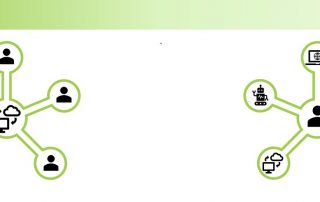Blog
Ephemeral Communications Compliance
Nearly every organization in the world is concerned about data. More specifically, they’re concerned with how they store and share information internally and externally while maintaining security. Even with small amounts of data, this is no small task in our ever-connected world. This is one of the reasons ephemeral messaging has become so popular for both business and personal use.
Keeping Up with the Pace of Regulations: How Lawyers Can Best Use Technology
On September 25th, 2019, Prescient’s Associate Director of Communications, Asha Underiner, presented at the 2019 International Bar Association held in Seoul, South Korea on the topic “Technological and Analytic Solutions to Address Evolving Due Diligence Requirements.” Along with Juliet Tainui Hernandez, Partner, Chief Compliance Officer at Norton Rose Fulbright LLP; Valentina Zoghbi, Head of Compliance at CMS; Simon Davis, Head of Commercial Litigation at Clifford Chance; Richard Harrison, Partner, Head of Lawyers’ Liability at Clyde & Co; and Sun Hee Kim, Partner at Yulchon, Asha contributed to a panel titled “The Role of Artificial Intelligence (AI) and other New Technologies in supporting compliance and helping compliance and in-house teams work smarter.” The following reflection represents a continuation of the topics discussed during the meeting.
Continuous Diagnostic & Monitoring Program Brings Together Cyber Experts
The Continuous Diagnostic & Monitoring (CDM) Program is a multi-agency platform and initiative to identify and predict which techniques, models, and emerging technologies cybercriminals and attackers are currently leveraging and will be exploiting in the future. The CDM Central conference will discuss several public and private sector efforts to establish security beyond perimeters, safeguard mobile devices, and protect sensitive data in the cloud. The objective is to pinpoint tactical and strategic risk coordinates for successful risk management in “Navigating the Cyber Roadmap”.
A Brief History of Corporate Espionage
In the early 1700s, a French Jesuit missionary in China sent detailed porcelain manufacturing information back to France. In the 1800s, the British East India Co. hired Robert Fortune, a Scottish botanist, to travel to China and smuggle tea to help India gain a competitive edge in the tea market. And in 2018 and 2019, two Apple Inc. engineers were accused of stealing valuable trade secrets (photos and electronic files) related to Apple’s autonomous car program, Project Titan. Clearly, just as business has changed along with the technology we use daily, so too have the methods of spying. But the essence of corporate espionage–known also as industrial or economic espionage–remains unchanged.
Elizabeth Holmes & Theranos: From Innovator to Fraudster
When it comes to technological breakthroughs, the focus remains on paradigm shifts: everyone wants to take part in the next big thing, the next breakthrough that will revolutionize the way that the world works. As the self-styled Steve Jobs of the healthcare industry, Elizabeth Holmes promised investors this degree of innovation with her startup, Theranos. Years later, with Holmes’ criminal trial date announced for the summer of 2020, her Silicon Valley debacle creeps back into the national spotlight, positing her as a fraud rather than an innovator.
Globalizing the GDPR: Can Anti-Corruption Practices Withstand the Evolving State of Personal Data Protection?
May 2018 marked the onset of a series of data protection changes that appeared would impact just one part of the world. At this time, the European Commission enforced the General Data Protection Regulation (GDPR), thereby intensifying personal data protection standards for EU-participatory companies. Any corporation operating or conducting business in the EU became subject to the updated criteria, whether an entity directly registered in the region or a foreign business targeting EU consumers.






